Fertility and reproductive health
Although fertility has generally fallen in Latin American and Caribbean countries, major differences persist in the number of children that women have, depending on their socioeconomic status, educational level and ethnic origin. The increase in adolescent pregnancy is a cause for concern, since it has a profound impact on education and the opportunities available to young people. CELADE has devoted special attention to this issue, by providing direct technical assistance to the region’s countries and by lending technical support for the prevention of adolescent pregnancy.
Activities
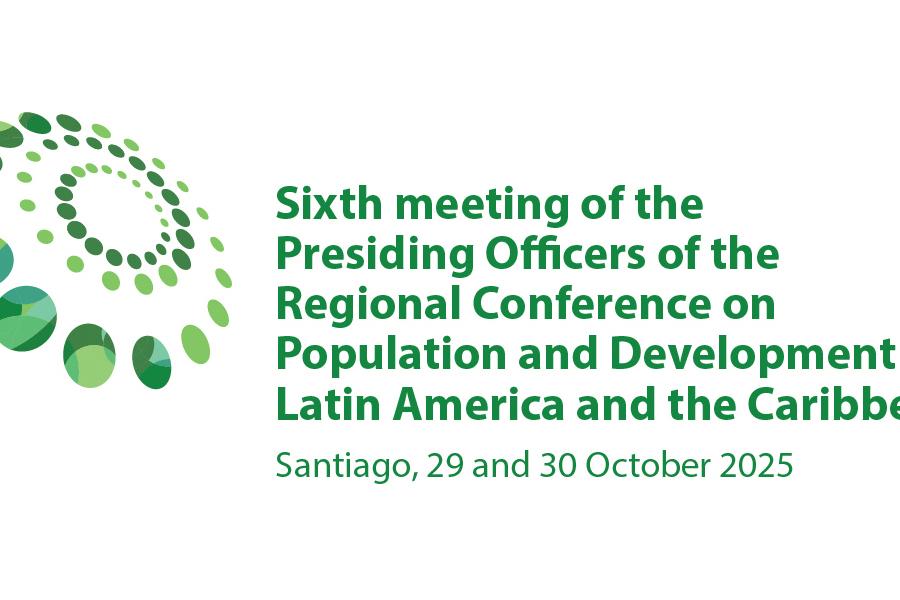
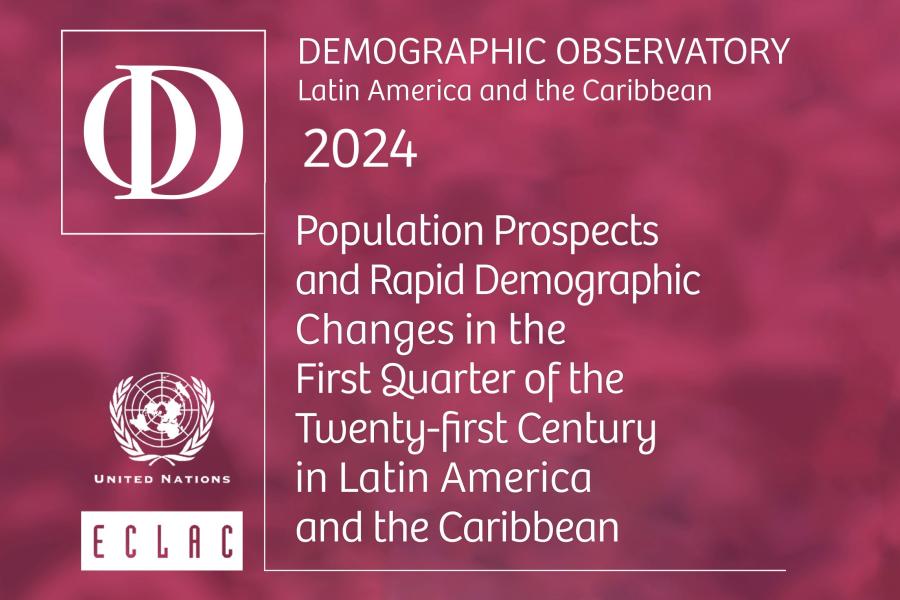
Launch of the 2024 Demographic Observatory: "Population Prospects and Rapid Demographic Changes in the First Quarter of the 21st Century in Latin America and the Caribbean"
CELADE - Population Division of ECLAC invites to the launch of the 2024 Demographic Observatory, a document presenting the main demographic indicators of Latin America and the Caribbean according to the 2024 revision of the United Nations population estimates and projections. The document compares these indicators with the 2000 revision with the aim of highlighting the major demographic changes in the region since the beginning of the 21st century.

Fifth meeting Presiding Officers of the Regional Conference on Population and Development and Special session “10 years of the Montevideo Consensus on Population and Development”
La sesión extraordinaria “10 años del Consenso de Montevideo sobre Población y Desarrollo” y la Quinta Reunión de la Mesa Directiva de la Conferencia Regional sobre Población y Desarrollo de América Latina y el Caribe tendrán lugar en la sede de la CEPAL en Santiago, los días 14 y 15 de noviembre de 2023.

Fourth session of the Regional Conference on Population and Development in Latin America and the Caribbean
La reunión tiene entre sus objetivos analizar los impactos sociodemográficos de la pandemia del COVID-19 en América Latina y el Caribe y los retos que plantea la crisis sanitaria para la implementación del Consenso de Montevideo sobre Población y Desarrollo.
News
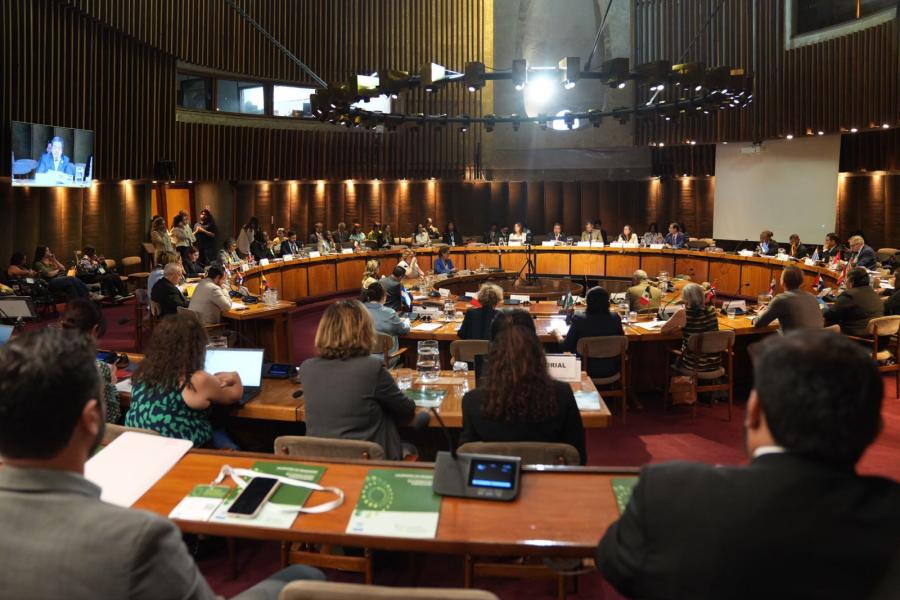
Regional Population and Development Gathering Culminated at ECLAC with Warnings about Low Fertility, Population Ageing and the Rights of Persons with Disabilities
The Sixth Meeting of the Presiding Officers of the Regional Conference on Population and Development in Latin America and the Caribbean took place at the United Nations regional organization’s headquarters in Santiago, Chile.

Total Fertility Rate in Latin America and the Caribbean Reaches 1.8 Children per Woman in 2024, Deepening the Below-Replacement Fertility Trend
ECLAC’s Demographic Observatory 2025 analyzes the region’s historical and recent trends in fertility, with special emphasis on its decline, and examines the public policy challenges posed by this new scenario.
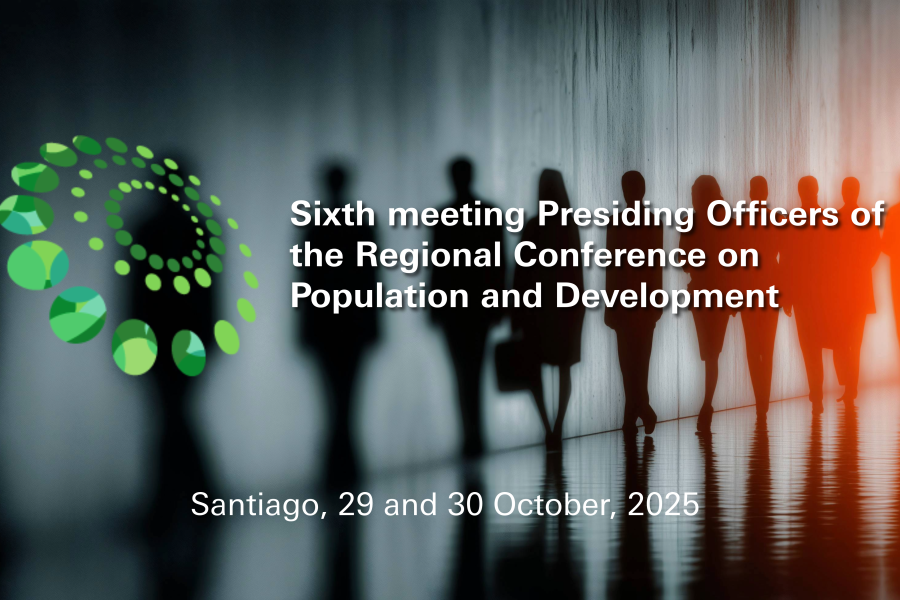
Sixth Meeting of the Presiding Officers of the Regional Conference on Population and Development Will Be Held at ECLAC on October 29-30
This intergovernmental gathering will take place at the United Nations regional commission’s main headquarters in Santiago, Chile.
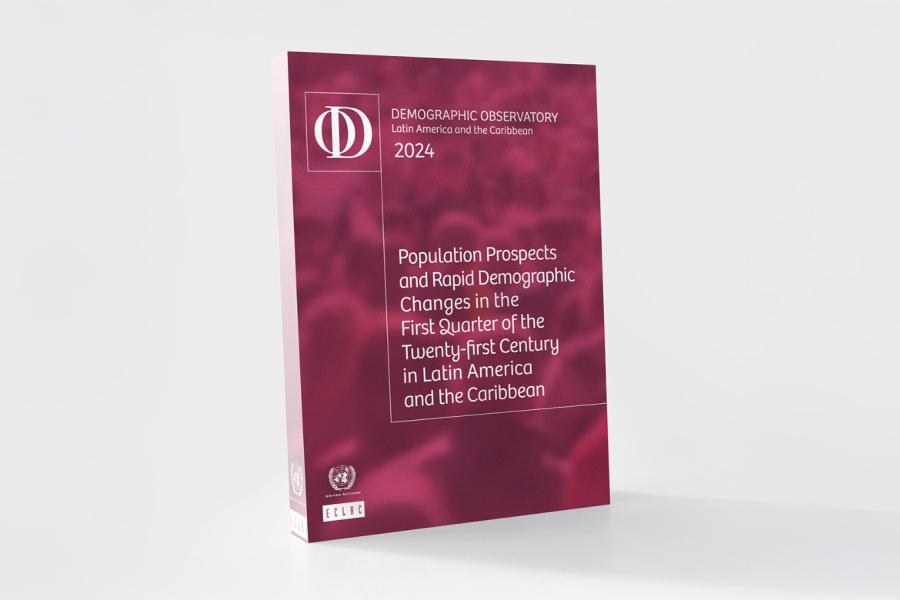
Population Growth in Latin America and the Caribbean Falls Below Expectations and Region’s Total Population Reaches 663 Million in 2024
ECLAC’s 2024 Demographic Observatory report, launched today, examines the acceleration of demographic changes in the first quarter of the 21st century in the region, along with the implications of ageing for the labor force and care.
Video
Infographic
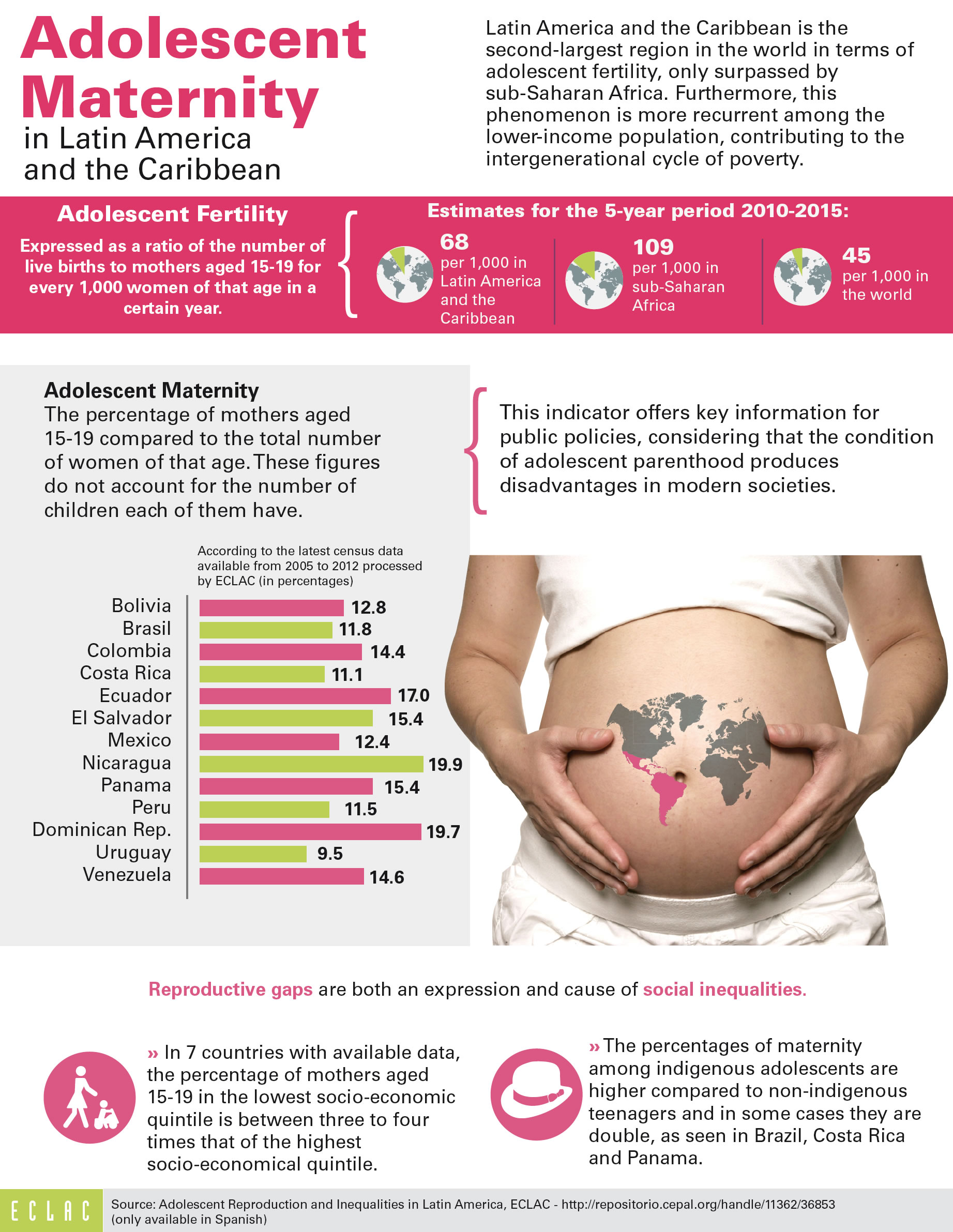
Adolescent Maternity in Latin America and the Caribbean
Latin America and the Caribbean is the second-largest region in the world in terms of adolescent fertility, only surpassed by sub-Saharan Africa. Furthermore, this phenomenon is more recurrent among…
Contact
Jorge Rodríguez Vignoli
- jorge.rodriguez@cepal.org
- (56 2) 2210 2096